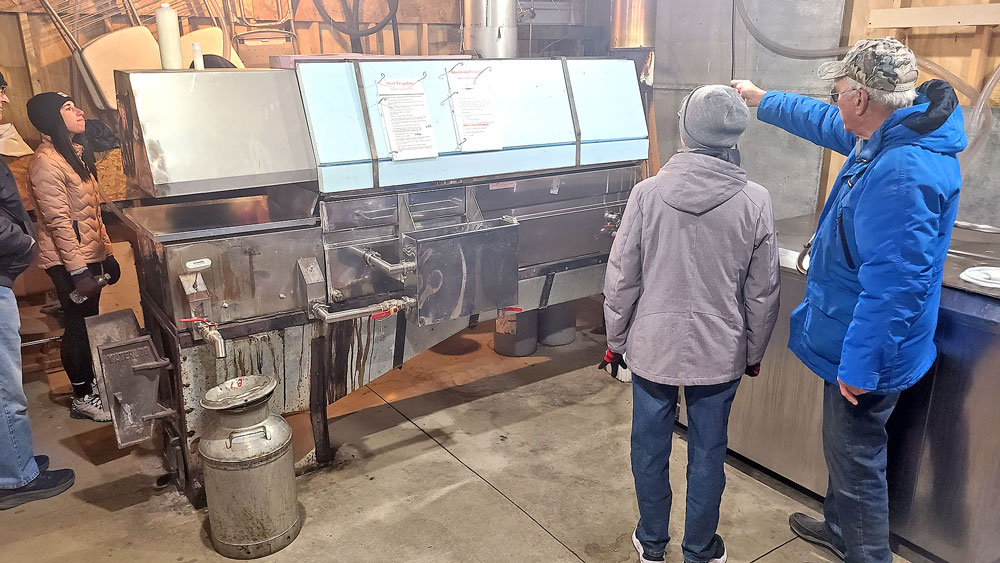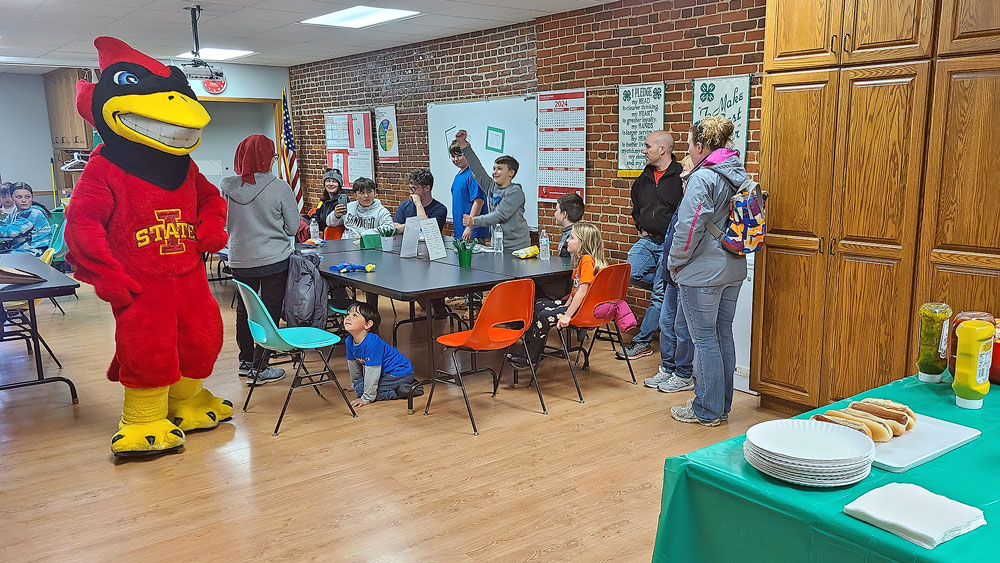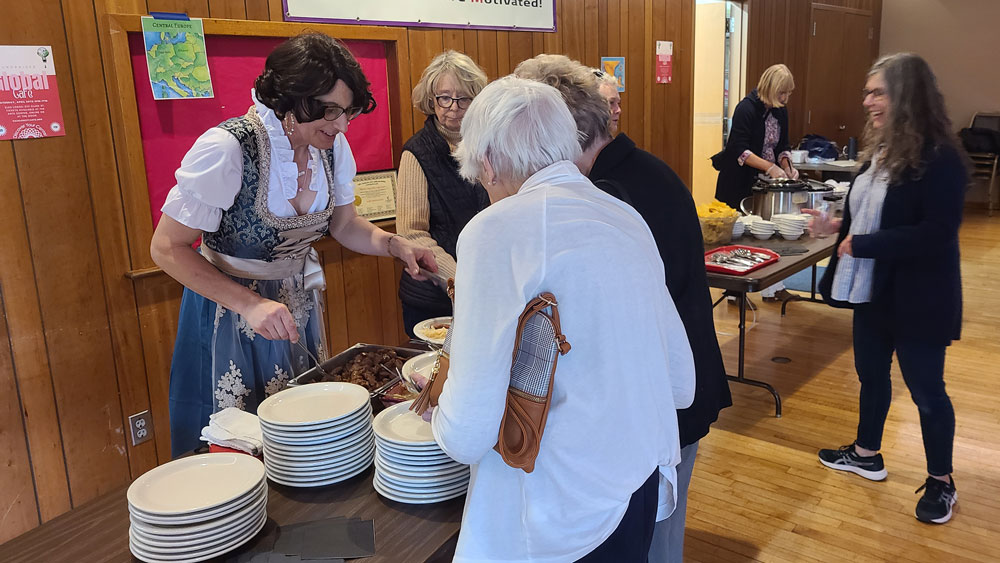Broadband Commission recommends Charles City Council approve municipal broadband utility
By Kelly Terpstra, kterpstra@charlescitypress.com
One last pitch with a big vote looming.
That’s where a $13 million fiber-to-the-home project that has been 14 years in the making currently stands in Charles City.
The City Council heard a bevy of reasons from the Broadband Commission on Wednesday evening why moving forward with a municipal broadband utility project would benefit Charles City.
City Administrator Steve Diers said a resolution will be on Monday’s regular City Council meeting agenda to vote whether the commission moves from the current design/engineering phase and into build mode. The commission is hoping to be able to break ground and begin laying fiber by spring.
“It’s an exciting time,” said Diers.
If the council votes to go ahead with a city fiber system, a utility board will be appointed by Mayor Dean Andrews. All decisions from that point on concerning the broadband project would be made by that board of trustees, such as issuing revenue bonds to fund the project and the oversight of the operation.
“We’re on the precipice of being completed as we finalize some of the nuances with location and the details with the project,” said Diers. “The nice thing about this whole endeavor is that we’re getting to that place in time – we’ve probably been there for awhile – internet connectivity is not just a desire, it’s a need.”
The positives outweigh any financial risk, according to members of the five-person Broadband Commission and other city leaders who have been directly involved in the fiber-to-the-home discussions. Many of those involved with the commission have worked over the last few years in an attempt to make the project a reality.
“All the aspects from the financing look positive. We’ve been taking this a step at a time. This is a big deal. This is a big project,” Diers added.
The cost incurred into the third year of the project lists capital expenditures of $13.2 million and bond requirement of $12 million. The cost of the project would be recouped through subscribers who would choose to purchase high-speed internet, video/TV and telephone, or any combination of those.
“This will be paid for by the subscribers,” Andrews said. “It’s not going to be a tax-subsidized service. All the information that we’ve gotten so far shows that is a definite possibility and probability. That’s what we’re counting on is that the people who are served by this, who subscribe to it, will pay the cost, as opposed to somebody who doesn’t want it. It’s not going to be on their tax bill.”
Feasibility studies show a “take rate” of approximately 40 percent of the possible residential and business customers will need to buy the service in Charles City to pay for the system in the long run.
Broadband Chairman Mark Wicks said the state’s average take rate is 72 percent in communities that have undertaken similar projects.
“We need a little over half of that to make this all pencil out,” said Wicks.
“We anticipate it’s going to be much stronger than that,” said Diers.
“This has been a 14-year discussion,” said Wicks. “This is not something that we rushed into lightly. It’s been both frightening and exciting at the same time. We’re not 100 percent there yet. This is not to be in competition with any private industry. What this is all about is service and reliability.”
The infrastructure built to create the telecom would potentially connect thousands of residents and businesses in Charles City with the objective of providing a fast, reliable and universally available network within the city.
Wicks, who is Charles City’s community development director, said the service will provide the opportunity to bring businesses to Charles City that are looking for a fast, reliable local internet connection. The availability of reliable broadband service is often the first question asked by businesses inquiring about coming to Charles City.
“This is an economic development driver. This is no different than a four-lane interstate for transportation purposes. This is our new superhighway,” said Wicks.
“This is this century’s or this generation’s indoor plumbing,” said Council member Michael Hammond. “It’s a basic connection for education – everything, to the world.”
Wicks also emphasized that residents of Charles City are not required to take the service.
“This is not mandatory,” he said.
Broadband member Danny Wilson Jr. said the fiber line created by Charles City would allow 5G cell phone access into the city limits and “be the backbone” to making it happen.
The internet connection would be a regional loop that connects with adjacent communities and would provide redundancy and reduce costs.
The redundancy would prevent a cut line, for example, from causing extended problems in the system.
“If the signal quits coming in one direction, in a microsecond it will start coming in the other direction. So you’re not going to have as many down times. It’s going to be much more reliable,” said Andrews.
Diers and Wicks each said the fast fiber connection is essentially a gateway to the future that has no bounds. Diers mentioned specific examples like traffic signal synchronization, connection to water towers and remote reading of water meters as being just some of the plusses that could be created by such a venture.
“The possibilities are pretty much endless with this,” said Diers. “Those are all revenue sources that are not figured into the proforma and our study. That’s all gravy that would be on top.”
“We don’t know how tech is going to advance and how things are going to be moving forward. But we do know that fiber gives us the flexibility and availability to handle changes,” Wicks added.
Council member and Broadband ex officio member DeLaine Freeseman reminded everyone at the council planning meeting Wednesday that it is not 100 percent guaranteed that there might not have to be any monetary contribution by the city if the revenue bonds don’t come in as planned.
“This will be based on primarily subscribers to it, but there may be a need for some city investment once we get the bond people talking to see what they can sell and how they can sell it,” said Freeseman. “It’s a possibility.”
Wilson pointed to communities such as New Hampton, Vinton and Fort Dodge that are in various stages of constructing a broadband link in their communities in an effort to improve the quality of life for their residents and promote economic growth.
Wilson also said Osage’s financial payoff occurred in about half the time the community expected after implementation of a fiber network.
“One of the reasons the finance guys are favorable on this is there’s proof out there. There’s communities that have done this that have been successful,” said Wicks. “The whole point of this is it gives us, the city – we have got control over our broadband system.”









Social Share